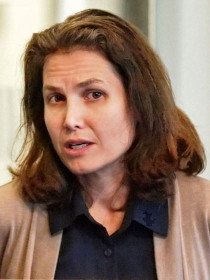
Jennifer J Prah
Connect with Jennifer
About Jennifer
Prah is a leading global scholar of domestic and global health policy and public health. She conducts theoretical and empirical studies of health equity to address global and national health inequities, especially among women and children. Prah founded and directs the Health Equity and Policy Lab (HEPL), a mixed methods lab that studies public health and health and social policy issues such as the equity and efficiency of health system access, financing, resource allocation, policy reform, and the social determinants of health. Her research is conducted internationally and nationally.
Contributions
The Moral and Economic Case for Health Insurance
In the News
Publications
Contends that global and national responses to health governance must be grounded in moral and ethical claims about health. Analyzes the current public health problems of a globalized world, frames the norms by which global health policy should be structured, examines the current global health architecture,
Uses the COVID-19 pandemic to show the importance of a country’s implementing a justice framework for health and equality.
Focuses on two areas of substantial and growing importance to the human development and capability approach: health and disability. The research on disability, health and the capability approach has been diverse in the topics it covers, and the conceptual frameworks and methodologies it uses, beginning over a decade and a half ago in health and more than a decade ago in disability. Shares a set of contributions in these two areas: the first set of chapters focusing on disability; and the second set focusing on health and the health capability paradigm in particular.
Discusses some of the challenges of global health inequalities and the current global health policy system and some of the components of the provincial globalism and shared health governance frameworks.
Argues that the proper object of global health governance should be the common good, ensuring that all people have the opportunity to flourish.
Explores a more nuanced picture of language surrounding a right to healthcare in the US law.